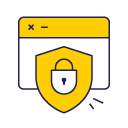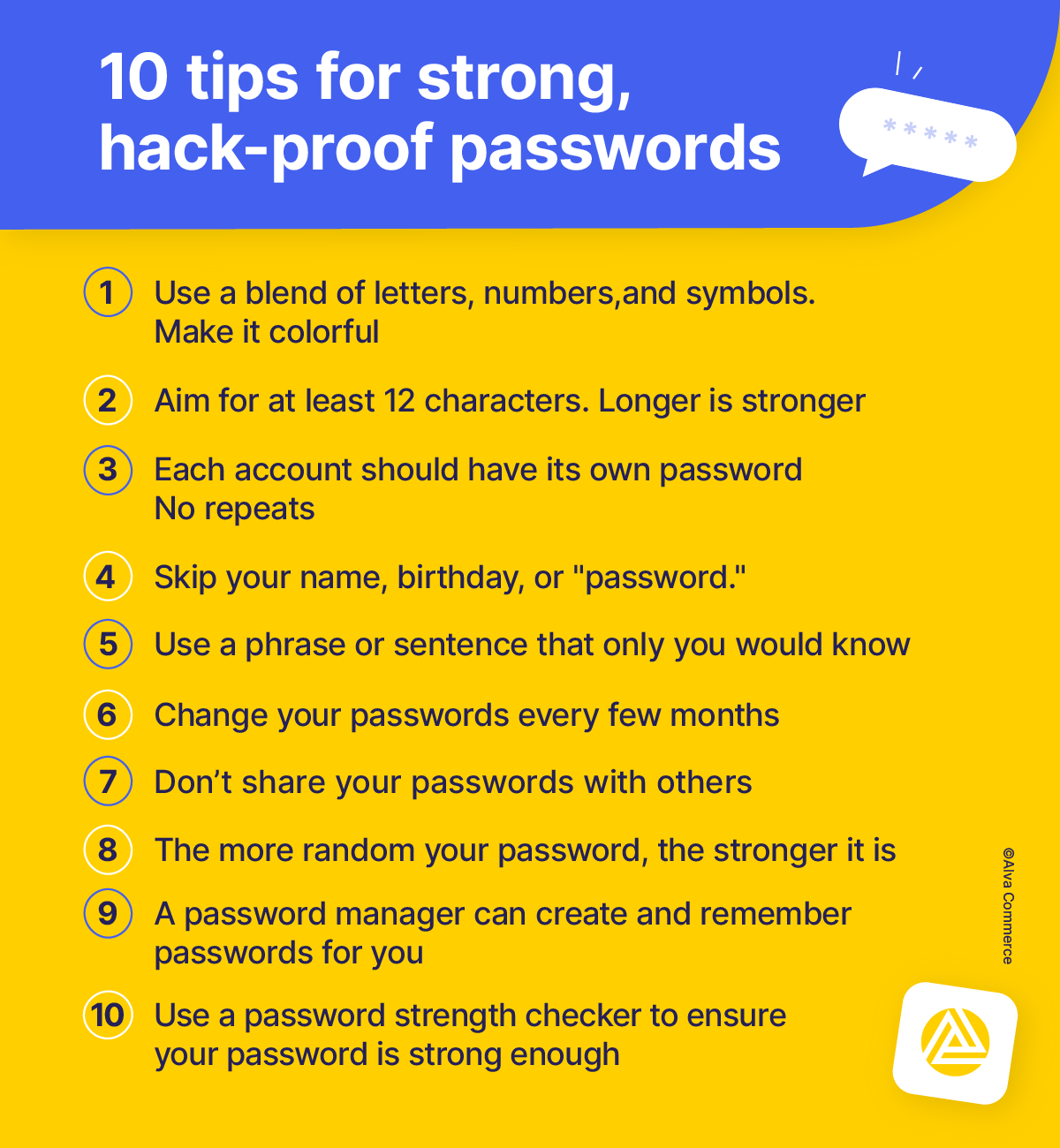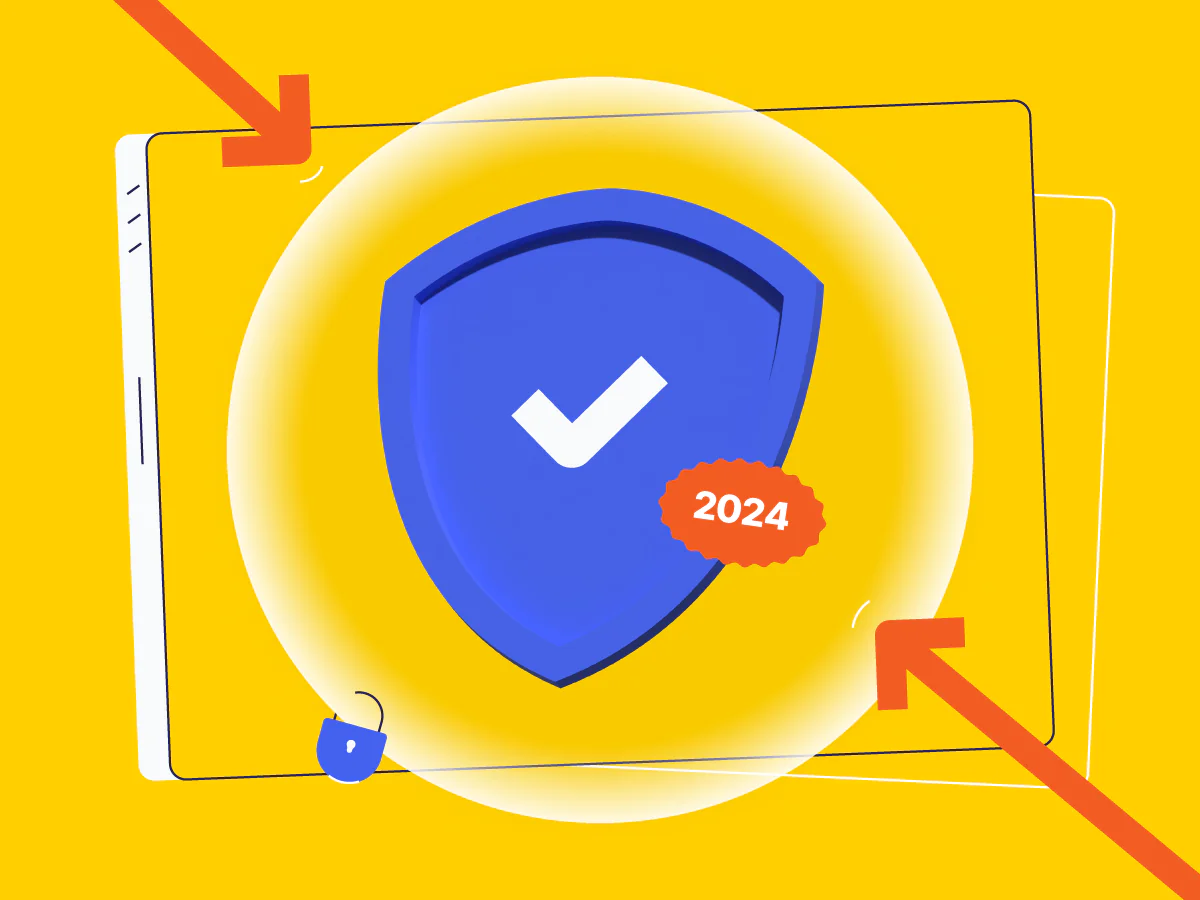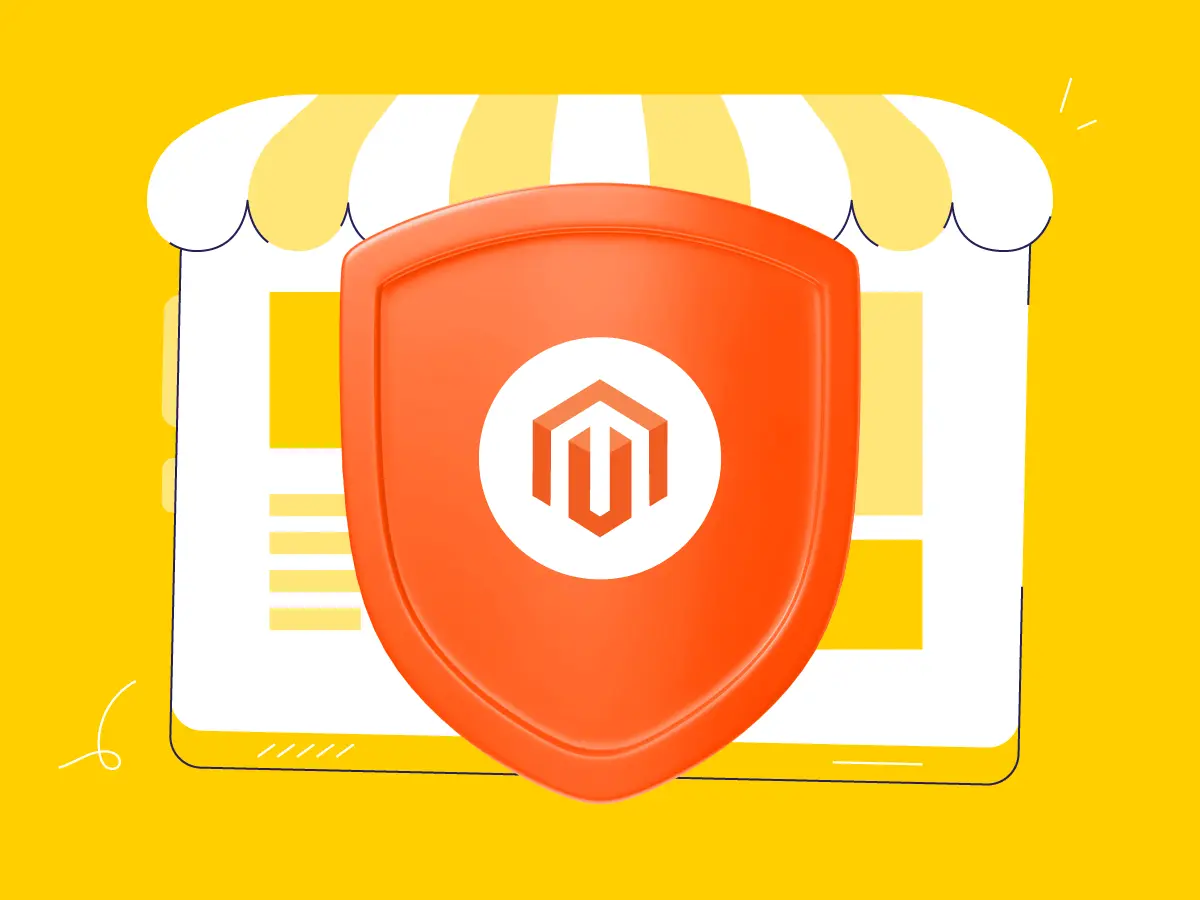In 2024, keeping your online business safe is more crucial than ever. Think about it — how often do we hear about security breaches impacting even the biggest names out there? Yes, every other week.
And those are only the most well-known companies. How many smaller businesses are affected? Thousands.
So, have you thought about what really protects your site from hackers? It’s all about strong website security, both on the front end and behind the scenes. A security slip-up can do real damage, hurting your reputation, losing customer trust, and even hitting you financially.
We’re going to look at the top website security practices to keep your site safe.
Security best practices in 2024
Many attacks today focus on finding weak spots in web services. Microsoft reports that about 30% of these attacks aim at websites. Further in this article, we will delve into the most effective internal and external website security best practices. We’ll explore strategies that not only protect against the latest threats but also strengthen the overall security posture of your online presence.
Comply with relevant data protection regulations
When starting to dig into security regulations, you can feel overwhelmed by all the data protection laws. You’re not alone. Keeping up with things like GDPR in Europe, CCPA in California, and other rules that apply to your business is crucial for keeping your website safe. But it’s not just about ticking boxes. These laws guide us in protecting and respecting customer data.
So, how do you make sure your website is playing by the rules? Here are some simple steps:
- Understand which laws apply to your business and website. This knowledge is key for both your website’s outward security measures and your internal policies.
- Security regulations change from time to time as new threats emerge. So, you need to keep an eye on relevant updates.
- Ensure your website’s privacy policy is easy to find on your website and clear. Being transparent helps build trust with your visitors.
Prevent common vulnerabilities with SSL certificates
SSL certificates are like secret codes for data between your user’s browser and your website, making sensitive info unreadable to outsiders. They’re crucial for protecting personal details like passwords and credit card numbers. Plus, they make your site more trustworthy to visitors and search engines.
If you haven’t already, getting an SSL certificate is a vital step. Many web hosting providers for Magento, and eCommerce platforms, like Shopify, offer SSL certificates as part of their packages or plans.
Deploy a web application firewall (WAF)
Imagine your website as a storefront. Now, think of a Web Application Firewall (WAF) as the security guard at the door, checking who comes in and out to keep the bad guys at bay. That’s pretty much how a WAF defends your online space from digital threats. It’s a key player in Magento security tips, acting as a protective barrier for your site.
A WAF works by filtering, monitoring, and blocking harmful traffic. Whether it’s a sneaky SQL injection or cross-site scripting (XSS), it steps in to stop these threats in their tracks. It’s like having a bouncer for your website, but instead of checking IDs, it’s checking for malicious activities.
Here’s why deploying a WAF is crucial:
Adding a WAF to your website security checklist is a move towards safeguarding your site from various angles. Consider it an investment in your website’s health and your peace of mind.
Protect your site from DDoS attacks with CDN
Imagine your website as a bustling city, and suddenly, it faces an unexpected storm—this is what a DDoS (Distributed Denial of Service) attack feels like. It tries to bring your site down by flooding it with too much traffic. So, how do you keep your site standing tall? With the CDN, or Content Delivery Network.
What does a CDN do?
A CDN spreads your website’s traffic across a global network of servers. This isn’t just to speed things up—it’s a key strategy to weaken DDoS attacks. By sharing the traffic, CDNs make it tough for attacks to focus on and take down your site.
Why use a CDN?

Dilutes traffic
It spreads out requests so no single server gets overwhelmed during a DDoS attack.

Boosts performance
It speeds up your site, enhancing the user experience and SEO.

Acts as a security shield
It serves as a frontline defense against the barrage of unwanted traffic.
Using a CDN not only strengthens your site’s defenses but also boosts its performance. It’s crucial for both protecting and speeding up your site. Learn more about why page loading speed matters and how to improve the performance of your Magento website.
Regularly update apps to keep your website safe
Just like how you wouldn’t drive a car with faulty brakes, using outdated website software is a no-go. It leaves you open to cyberattacks.
Why can’t updates wait?
- Cyber threats are always changing. With each update, you’re getting the latest protection.
- Every update patches security gaps. Skipping an update is like leaving your house with the door wide open.
- Updates aren’t just about safety. They also bring new features and improvements, making your site run better.
What can you do to protect your website?
The most important step is to turn on automatic updates for your eCommerce platform, be it Magento, Shopify, or WooCommerce, apps, and plugins.
Additionally, you can opt for professional website support and maintenance, where experts will update and address any issues that arise.
Perform routine security scans and audits
Just like regular health check-ups keep you in top shape, consistent security scans and audits are key to a secure website. They help uncover hidden problems you might not see at first glance and stop problems before they start.
Steps for stronger security:
- Set up routine scans. Automate security scans to regularly look for weaknesses. Think of it as a health routine for your website.
- Use specialized apps. To enhance your security evaluation, think about using external security scanning services.
- Do deep dives with audits. Every so often, thoroughly check your site for security risks. The most effective way is to opt for professional website maintenance services or in-depth code review.
Why strong passwords and verification matter
Strong passwords and extra verification steps might seem like a hassle, but they’re essential for keeping your website safe. Think of it as making sure only the right people can enter, while keeping everyone else out.
The 2022 Microsoft Digital Defense Report found that in a study of 39 million IoT and OT samples, nearly 20% used the same usernames and passwords. Thus, it’s reasonable to encourage passwords that mix letters, numbers, and symbols to make breaking in much harder.
Adding MFA is like putting a deadbolt on your door. It asks for another piece of evidence beyond your password. It’s an extra step, yes, but it greatly reduces the chances of someone else getting in.

While setting up strong passwords and MFA may initially seem tedious, they significantly reduce the risk of security breaches. Yes, finding the right balance between security and user convenience is key, but the added safety is worth a bit of extra effort.
Educate your team
Your team is your best defense against online dangers. Basic security steps can stop 93% of threats. That’s why teaching your team about cybersecurity is key. Hold training to make them aware and ready to tackle security issues:
- Set up regular training on cybersecurity. Keep your team updated on threats and how to handle them.
- Use real examples to show how security tools work, like two-factor authentication and password managers.
- Bring in experts to talk about the latest in digital security. Their knowledge keeps your team sharp and cautious.
- Run security drills that mimic cyberattacks, like phishing or data leaks. It’s good practice for dealing with real threats.
In short, regular training, practice, and a clear plan make your team ready to face cybersecurity challenges.
Backup data and plan recovery
Backing up your data and having a solid recovery plan might not be the most exciting part of running a website, but it’s definitely among the most critical. It’s like having a safety net; you hope you never need it, but you’ll be glad it’s there if you do. This step is a cornerstone of website security best practices.
Disaster recovery plan
This is your game plan for the worst-case scenario. What do you do if data suddenly vanishes? Make sure everyone knows what to do if something goes wrong. Keep the plan updated.
Regular backups
Like clockwork, ensure your site’s data is backed up. This means everything from customer details to your latest blog post.
Secure storage solutions
It’s not just about having backups; it’s about keeping those backups safe. Think of secure, off-site storage that hackers can’t easily access.
Clear recovery strategy
Knowing is half the battle. Ensure your team knows how to restore data quickly to minimize downtime.
Investing in robust backup and recovery solutions is about preparing for the unexpected. It ensures that if something goes wrong, your business can bounce back quickly, minimizing disruption.
Conclusion
Wrapping up our guide on external and internal website security best practices for 2024, it’s clear that safeguarding your digital space is essential. From implementing regular security audits to educating your team and ensuring data backup, each strategy plays a vital role in protecting your business online.
At Alva Commerce, we’re here to help you navigate the complexities of website security best practices. By partnering with us, you can focus on growing your business while we ensure your website remains secure against evolving threats. Trusting professionals with your website security is a smart move, ensuring peace of mind and a fortified online presence. Let’s work together to keep your website safe and secure.










